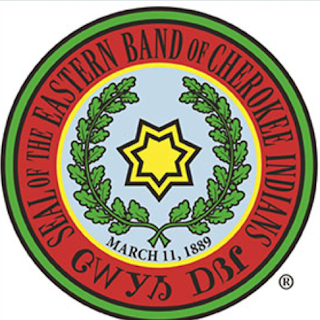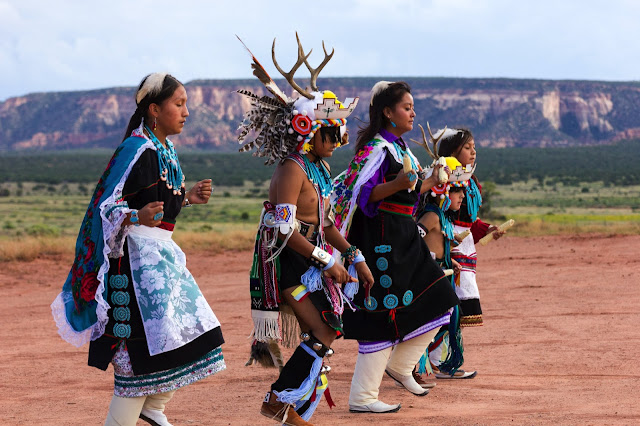Cherokee Nation challenges Tennessee recognition of 6 tribes
Published in Indian Country Today in August 2010. For more on topics like this, see my book, American Apartheid: The Native American Struggle...
A representative of the Oklahoma-based Cherokee Nation has filed a lawsuit in Tennessee charging the state’s Commission of Indian Affairs violated open-meeting “sunshine” laws when it unexpectedly gave state recognition to 6 local groups. The commission appears to have altered its rules in order to do so. It took action on June 19, about a month after the state legislature had curtailed its authority and 11 days before the date on which the legislature had slated it to go out of existence.
Commission chairperson Tammera Hicks called the event “historic” and a fulfillment of the agency’s purpose. Green-lighted groups include the Cherokee Wolf Clan, Central Band of Cherokee, Tanasi Council, Chikamaka Band, United Eastern Lenape Nation of Winfield, Tennessee and Remnant Yuchi Nation.
Principal Chief Michell Hicks, Eastern Band of Cherokee Indians, criticized the process. “As one of three federally recognized Cherokee tribes, we have had no interaction with any of these groups, and I absolutely do not support them in this endeavor.”
Cherokee Nation communications officer Mark Miller described the commission’s actions as “defying the state legislature.” He went on to say that, as a Cherokee, he could certainly see the attractions of his culture. However, he said, it is important to distinguish between heritage clubs, which is how he defined these groups, and federally recognized tribes, such as the Cherokee Nation.
“When people do genealogical research, they find all sorts of ethnicities and may take a particular interest in some of them. People who discover a little German heritage, for example, might want to study the German language and go to Oktoberfest. But this doesn’t give them the right to automatically become a German citizen or to create their own Germany. Similarly, you can’t make up your own tribe just because you found a Native ancestor.”
The Cherokee Nation and the Eastern Band of Cherokee Indians positions have long struggled to protect their political and cultural identity. A 2008 joint resolution described threats over the years to their sovereignty and reputation by those claiming to be Cherokee, along with the loss of millions in federal funding. The document called the problem epidemic and said it “often involves membership fees, misleading presentations to school children and interference in a multitude of government functions, including child welfare cases.”
“Lies” was how Principal Chief Joe Sitting Owl White described criticism of the recognition process. “They’ll lie till the Lord comes, and they will not inherit the Kingdom of Heaven.”
The ink had barely dried on the recognition certificates when 10 former Tennessee Indian-affairs commissioners submitted a letter to the state’s attorney general, denouncing the process and calling the groups merely “culture clubs.” The ex-officials charged conflicts of interest, noting that 4 of the 6 current commissioners belong to the tribes they approved. The 10 former officials also questioned the legitimacy of the new tribes’ identity claims, which are based in part on others’ perception that one is Native American and on business activities that address cultural preservation.
Some of the newly recognized groups assert a relationship to a single historic nation; the Chikamaka Band says it descends from a confederacy of Cherokees, Creeks, Shawnees, and other nations. The Central Band of Cherokee has an especially far-flung heritage. This includes believing it is a Lost Tribe of Israel, said Principal Chief Joe Sitting Owl White. “We have DNA proving this and a team working hard on a treaty with Israel.” A Facebook site for the Central Band offers links to archaeological information supposedly demonstrating the Israeli connection, including a portrait of Pocahontas showing her “Jewish traits.”
Though a state’s stamp of approval falls short of federal recognition, the benefits can still be substantial. In 2007, the Tennessee attorney general’s office issued an opinion saying benefits include eligibility to sell arts and crafts as Native-American-made and to receive minority scholarships and other education assistance; state-recognized groups can also be eligible for certain federal funds, including community block grants that assist with childcare, employment, emergency services, health care, housing, home-energy bills and other needs. At press time, the Bureau of Indian Affairs had not responded to a request for its position on federal benefits to state-approved tribes, or on how federal laws, such as those governing the welfare of Native children, apply to such groups.
Gambling is not on the table. According to Tennesee’s attorney general, the state-recognized tribes must meet more stringent federal requirements in order to conduct gaming activities, which may occur only on land the US Interior Department acquires on their behalf.
The attorney general’s office is currently considering a response to the lawsuit, according to Mark James, general counsel for the state’s environment department, under which the commission operated.
Hicks was adamant about his response to the recognitions. “I will work to ensure this action is invalidated.”
Miller had a suggestion. “If you’re proud of your Cherokee background, please express it in a way that’s friendly to our history and to those of us living today. Come and visit us. We’re alive and well, here in Oklahoma.”
Text c. Stephanie Woodard.
Text c. Stephanie Woodard.


